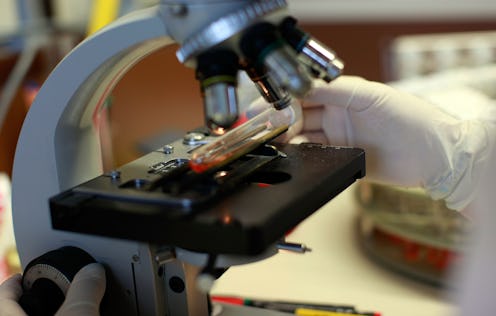News
Science Has Cloned Adult Cells For The First Time
In a leap for stem cell research, scientists successfully cloned cells from adults for the first time. A study published Thursday in the journal Cell Stem Cell showcases how researchers created embryos from the skin cells of two men, ages 35 and 75. The cloned cells from the participants feature their exact DNA matches, which is a significant advancement — this means there could be a new way to produce replacements for damaged cells in patients.
If you're freaked out about the beginnings of cloned people, don't worry just yet. The latest findings are a step toward treating diseases and organs, not so much focused on creating human doubles. Remember Dolly the sheep? Scientists in 1996 took the DNA from the cell of an adult sheep, put it into another sheep's egg cell emptied of its nucleus, implanted it into the womb of a third sheep, resulting in the cloning of the first mammal. This time around, researchers used the same technique, but with DNA from a middle-aged and elderly man.
The international team used 77 eggs from four different donors, and their attempts resulted in two successful cells. Using skin from each man, they extracted the DNA from the cells and inserted it into the egg cell of a female donor. Scientists were able to grow early embryos in what they call "therapeutic cloning," which could be used to create nearly-identical tissue or even organ transplants for the subjects.
In May 2013, researchers from Oregon Health & Science University successfully created human stem cells from donor infant cells, but Thursday's study marks the first time it's been generated using mature cells. While the findings present greater possibilities in the field of medicine, it also reopens the controversial debate over human cloning and its research. Critics are against the method due to its use of creating and destroying an embryo, which many equate to taking a life.
The report's results aren't intended to duplicate a person, though experts argue the technique could be used toward reproductive purposes. It'll be a while before that happens, however, since scientists have yet to clone our closest relatives: the monkey.
